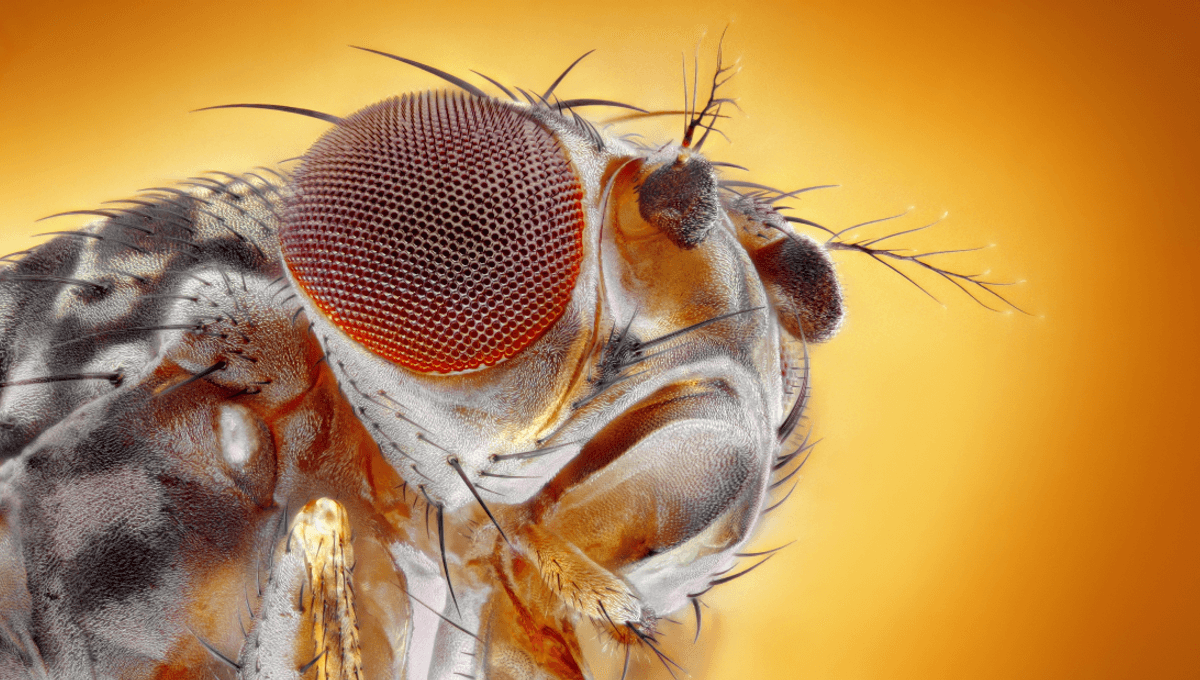
A new organelle has been found inside the cells of an animal for the first time. Named PXo bodies, they interact with inorganic phosphate in a way that’s previously only been seen in the cells of bacteria, plants, and yeast, but now it’s turned up in one of the most studied animals on Earth.
The fruit fly Drosophila melanogaster is no stranger to science, perhaps rivalled only by the omnipresent roundworm Caenorhabditis elegans (yes, that one everyone had serious beef over on Science Twitter). Despite having found themselves under the scrutiny of scientists for over a century, it seems fruit flies are still turning up some surprises.
A new discovery centers around a kind of organelle, which are miniature membrane-bound structures in a cell that carry out a specific function. Examples include nuclei that store genetic information, ribosomes that piece together proteins, and – of course – mitochondria, “the powerhouse of the cell”.
Researchers realized they had a new organelle on their hands when they tried staining an unidentified oval-shaped structure in D. melanogaster cells. They were only looking so closely at it because they were investigating the role of inorganic phosphate (Pi) in metabolism and signaling within animal tissues, when they noticed that a PXo protein known to transport Pi was jammed inside these mysterious orbs.
When none of the stains worked, it became clear to them they’d found an entirely new organelle for animal cells. Given its association with PXo proteins, they named them PXo bodies.
Electron microscopy enabled the researchers to unravel the PXo bodies’ structures, showing that they were made up of spiraling loops lined with Pi transport proteins. They were effectively sucking Pi out of the cell’s cytoplasm and storing it up. Pi is a good thing to have readily available stocks of, being essential for cell functions involved in metabolism and DNA synthesis.
When they started tinkering with the amount of Pi available to the fruit fly cells, they saw that not having enough led to massive overgrowth of cells in the digestive part of their bodies. This also triggered PXo to stop shifting so much Pi into storage, and the PXo bodies to break down some of their stocks, likely as a way to free it up for cell functions.
The findings shed light on the importance of intracellular regulation of phosphate in animal cells, which we’ve historically known very little about, but the researchers hope we can now start to make up for this following this initial springboard of discovery.
“Given the scarcity of knowledge about cytosolic Pi regulation in animal cells, our findings might have broad implications and open new avenues for studying Pi metabolism and signalling,” they concluded.
The study is published in Nature.
[H/T: Live Science]
Source Link: Scientists Just Spotted Something In Fruit Fly Cells Never Seen In Animals Before